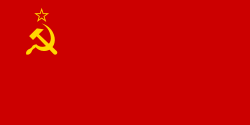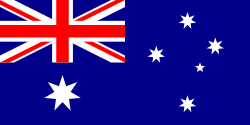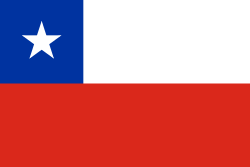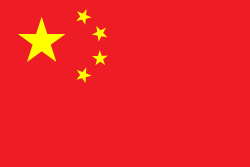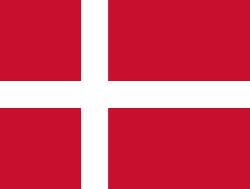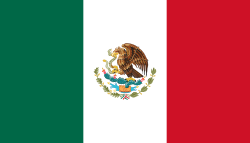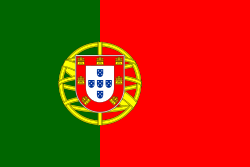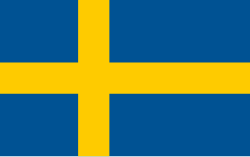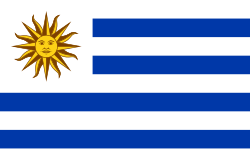Modern femkamp vid olympiska sommarspelen 1988
| Modern femkamp vid olympiska sommarspelen 1988  | ||||||
|---|---|---|---|---|---|---|
| Herrar | individuellt | lag | ||||

Resultat från tävlingarna i modern femkamp vid olympiska spelen 1988.
Medaljörer
| Spel | Guld | Silver | Brons |
| Individuellt[1] Detaljer... | Ungern | Italien | Sovjetunionen |
| Lag[2] Detaljer... | János Martinek Attila Mizsér László Fábián | Carlo Massullo Daniele Masala Gianluca Tiberti | Richard Phelps Dominic Mahony Graham Brookhouse |
Medaljtabell
| Pl. | Nation | Guld | Silver | Brons | Totalt |
|---|---|---|---|---|---|
| 1 | 2 | 0 | 0 | 2 | |
| 2 | 0 | 2 | 0 | 2 | |
| 3 | 0 | 0 | 1 | 1 | |
| 0 | 0 | 1 | 1 |
Deltagande nationer
|
|
Referenser
- ^ ”Modern Pentathlon at the 1988 Seoul Summer Games: Men's Individua” (på engelska). sports-reference.com. Arkiverad från originalet den 11 november 2012. https://web.archive.org/web/20121111152547/http://www.sports-reference.com/olympics/summer/1988/MOP/mens-individual.html. Läst 5 oktober 2013.
- ^ ”Modern Pentathlon at the 1988 Seoul Summer Games: Men's Team” (på engelska). sports-reference.com. Arkiverad från originalet den 6 augusti 2009. https://web.archive.org/web/20090806000928/http://www.sports-reference.com/olympics/summer/1988/MOP/mens-team.html. Läst 5 oktober 2013.
| ||||||||||||||
| |||||||||||
Media som används på denna webbplats
Olympic Rings without "rims" (gaps between the rings), As used, eg. in the logos of the 2008 and 2016 Olympics. The colour scheme applied here was specified in 2023 guidelines.
Olympic Rings without "rims" (gaps between the rings), As used, eg. in the logos of the 2008 and 2016 Olympics. The colour scheme applied here was specified in 2023 guidelines.
Kanadas flagga, införd 1965; denna version med Pantone‐nyanser. Nuvarande utformning ersatte den tidigare kanadensiska Red Ensign.
Det är enkelt att lägga till en ram runt den här bilden
Chinese Taipei Olympic Flag. According to the official website of Chinese Taipei Olympic Committee, Blue Sky(circle) & White Sun(triangles) above the Olympic rings is neither the National Emblem of the Republic of China, nor the Party Emblem of Kuomintang (KMT), but a design in between, where the triangles do not extend to the edge of the blue circle, as registered at International Olympic Committee in 1981 and digitally rendered in 2013. Besides, the blue outline of the five-petaled plum blossom is broader than the red one. Moreover, the CMYK code of the blue one and the Blue Sky & White Sun is "C100-M100-Y0-K0", and different from the Olympic rings (C100-M25-Y0-K0). Note that it's the only version recognized by IOC.
Variant version of a flag of Japan, used between January 27, 1870 and August 13, 1999 (aspect ratio 7:10).
Variant version of a flag of Japan, used between January 27, 1870 and August 13, 1999 (aspect ratio 7:10).
Flag of Portugal, created by Columbano Bordalo Pinheiro (1857–1929), officially adopted by Portuguese government in June 30th 1911 (in use since about November 1910). Color shades matching the RGB values officially reccomended here. (PMS values should be used for direct ink or textile; CMYK for 4-color offset printing on paper; this is an image for screen display, RGB should be used.)
Flag of South Korea from 21 February 1984 to 15 October 1997, when the exact colors were specified into their shades.
This is the flag of Bahrain used from 5 October 1950 until 14 February 2002. The base image is from the 2002 CIA World Factbook (mirrored at UMSL). I have removed the border and recolored the red section according to Image:Flag of Bahrain.svg.
Pictograms of Olympic sports - Modern pentathlon. This is unofficial sample picture. Images of official Olympic pictograms for 1948 Summer Olympics and all Summer Olympics since 1964 can be found in corresponding Official Reports.
Flag of South Korea from 21 February 1984 to 15 October 1997, when the exact colors were specified into their shades.



